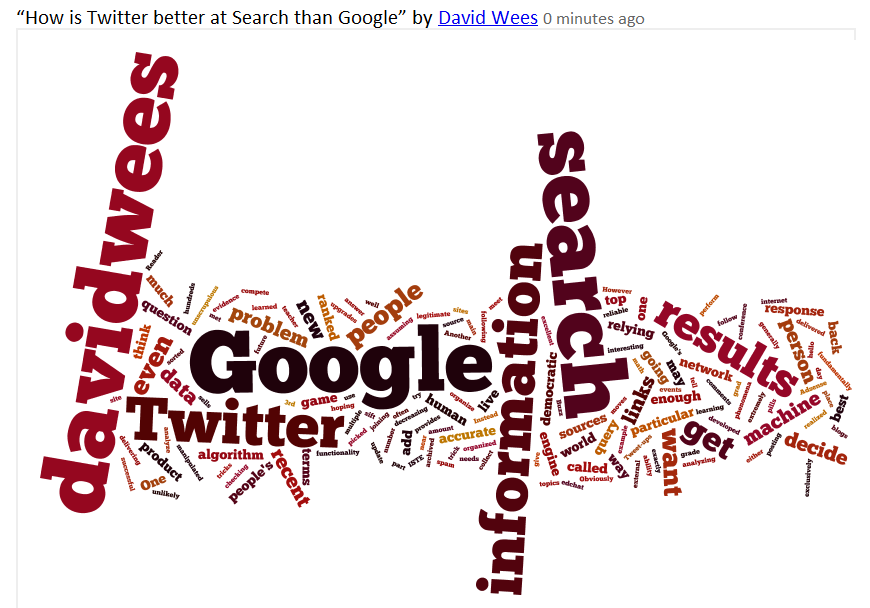
When you type in a search phrase in Google, you are relying on the search algorithm Google provides to give you the most relevant search results for your query. The problem is, people have learned how to game those search results, and quite often the best and most appropriate information isn’t going to show up in the top search results for your query.
You want proof of this? Do a search for "pills" on Google. I find it very unlikely that a website which exclusively sells male "enhancement" drugs should be so near the top of the list for Google results for this particular search. Obviously someone has done some trickiery to get their site to be ranked high. One of the most obvious tricks that is used to game Google is to add links to other people’s blogs, generally through spam comments. Another trick is to add referral links to other people’s legitimate sites, hoping these will be picked up by Google Adsense. Update: Apparently Google has found a way to suppress all of the "male enhancement" websites that used to show up for this particular search term. I’m looking for a replacement example.
However in Twitter, you can choose exactly which sources of information you want to include in your stream. You can even say hello to your sources of information and meet them in person at events called Tweet-ups! Instead of relying on a machine algorithm which can be manipulated by unscrupulous 3rd parties, you can have extremely recent and accurate information about the world delivered to you.
If you want evidence that Google is worried about this phenomena, check out their recent moves in terms of joining the "status update" wars. They have developed a new product called Google Buzz to try and draw people into their platform for delivering search, as well as adding recent upgrades to their established Google Reader product to perform the same functionality. They have even added "live search results" to their archived search results in their main ad engine.
Even Google has realized that data which is ranked by live human beings is much more valuable than machine sorted data. Until a machine can analyze two new math websites with no external links to either and tell me which is the best one for my 8th grade class, they aren’t going to be able to compete with a human being in terms of digesting and analyzing information.
You can even send out a question on Twitter and assuming you have enough people following you, you can get a response back. You may get multiple responses back, and get different perspectives on how your particular problem should be approached. One person I met described posting questions to Twitter as, "hundreds of grad students working on your individual problem." If no one knows the answer, or if your question is not interesting enough, you may even not get a response!
A further example of the power of Twitter is the ability of the people who form the Twitter network to self-organize. They can hold chats about specific topics (as is evidenced in the teacher #edchat on Tuesdays) or use Twitter to organize conferences (like the ISTE 2010 conference being organized on the #ISTE10 channel of Twitter).
Twitter is currently much more democratic than Google. You decide on who you follow, you decide on which filters you want to apply to their data, and you decide what information you share. I think that the internet needs to be fundamentally a democratic place in order to be successful as a source of reliable and accurate information.
As a search engine, Twitter is closer to the future and is an excellent way of learning about the world around you. I think that the number of Google searches I do each day has greatly decreased, largely because of this new way I have to collect information. Each person in my follower network does part of the job of checking if the information I would have found in a Google search is worth looking at, decreasing the amount of work I have to do to sift through Google’s endless pages of search results.